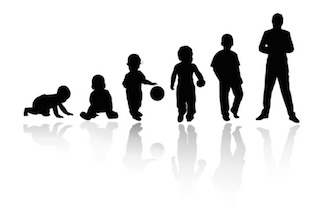 In my practice I see a lot of adolescents and young adults. I enjoy this age group: they are standing on the precipice trying to figure out their lives. It may sound corny, but it’s an honor to be part of that process, to be allowed in to the decision-making, the anxiety, the success, the failure, the ups and the downs.
In my practice I see a lot of adolescents and young adults. I enjoy this age group: they are standing on the precipice trying to figure out their lives. It may sound corny, but it’s an honor to be part of that process, to be allowed in to the decision-making, the anxiety, the success, the failure, the ups and the downs.
So we run the risk of having a 22-year-old college grad, eager to take on the world, who has never done so on his own before. Her parents called the professor about what was perceived as an unfair grade. He texted his parents every time he had the slightest anxiety or worry. He couldn’t get along with his roommate so his parents stepped in and pushed the school to make a change. Rather than summer jobs or part- time work he partied and slept late. Just a question: Do parents REALLY think that if their kids don’t have a job they’ll focus all that extra time on studying? Did you?
I’ve heard from people involved in hiring and managing in the corporate world that we now have a cohort of college grads who expect to be promoted just because they showed up to work for six months, have difficulty problem-solving, can’t “plow through” when need be, whether that’s coming to work when you don’t feel 100%, staying late to finish a big project, or getting to work in a snowstorm. Obviously this is not representative of every young adult—I have kids in my practice working at not one, but two or more part-time jobs, who engage in volunteer work, who work themselves too hard in an effort to succeed, and who, no doubt, have the mettle to scratch their way to the top if they so choose. No surprise that I sometimes see these kids because they’re anxious and stressed out. So, how do we find the happy medium between the kid who is lacking in the life experience he needs to start his adulthood and the kid who is not sleeping enough because he’s spread himself too thin? That balance has surely become harder to manage in the modern world…harder than it was when a certain 17-year-old in a leather jacket popped a punk rock cassette into her Walkman and hopped on the subway into downtown Brooklyn, excited about her first day of college.
Technology has made it easier to not grow up. Notice how I described my first day at college—Cassette tape???? No talking to my parents ALL DAY???? Did I mention the subway TOKEN? No Metro card? No GPS, no Mapquest, no Google?
I do love technology—I did, for a year, study to be an engineer, so I can appreciate the convenience of technology. I was one of the first of my friends to use email. I use some social media but not others. I use my cell phone for calls and texts, but generally not the internet. I write appointments in ballpoint pen. I often leave the house without my phone, whereas almost every young patient I see walks into therapy with a cell phone, but then gets annoyed when it starts to vibrate or light up. It’s this weird dichotomy of feeling tied to this gadget but also annoyed by it.
In the Paleolithic era, if I had a bad day at school, I had non-tech ways to find solace. My subway stop was right by a Baskin-Robbins. The worse the day, the bigger the sundae. I didn’t post my bad grade on Instagram, text my parents in a rage, or call for the professor’s resignation on the school’s website. Those options didn’t exist. I talked to my friends, I asked for help from a professor. I sometimes WAITED for help or satisfaction (or ice cream). One of my (still) very close (and very brilliant) friends tutored me in physics until I had a better understanding of vectors and formulas. I leaned on my peers face-to-face, as they did with me. One of the reasons I realized that a career as a therapist might be for me was that my friends would often come to me for an ear, and I enjoyed listening and problem solving. Not in 140 characters, but in real life, in real time, over pizza. Recent studies have shown that the mere presence of a cell phone in the line of vision causes people’s conversations to become more superficial and less substantial. I’d be curious to know how many kids are having these heart-to-hearts over pizza today, or does the vibrating phone on the table keep interrupting the flow? Maybe we need to get back to basics a little bit.
How can parents help their children to be one of the more successful ones? To sail through life a little easier and be more prepared for adulthood? Here are some tips:
• First and foremost, teach your kids responsibility and consideration for others. I tell kids all the time, I don’t care if Einstein had a job pumping gas, if he couldn’t get to work on time and do the job he was hired to do, no one would care how smart he was. Set an example, get to places on time, be considerate of others, communicate if things change, take your assignments and tasks seriously, and encourage your children to do the same.
• Don’t be so available all the time. There can’t possibly be nearly as many “emergencies” as the constant buzzing of phones at inopportune times would lead us to believe. Don’t abandon your kids, but let them know when you are NOT available. And don’t let them “blow up your phone” until you give in and pick up. Don’t reward that behavior, no one else will. One of my friends would ask his kids, “Is your head on fire? Are you bleeding? OK, I’ll be done in 15 minutes.” It’s not only OK for your kids to learn that the world doesn’t revolve around them, it’s a very important developmental accomplishment.
• As a corollary to the above, by not being so available, your kids will have to learn to solve some problems on their own. Most problems are solvable. And even if they’re not solved immediately, learning to wait, think, deliberate, weigh options, etc., is important. You solving their problem with a reassuring text within 30 seconds isn’t helping your child build her skills or confidence, nor teach her how to wait for resolution. Life isn’t a sitcom, not everything has to be resolved in 24 minutes.
• Let your kid get out and work. He’ll learn something. He may learn about something he might like to pursue as an adult. He may learn what he doesn’t want to pursue as an adult. He’ll earn a little money. He’ll build a resume. He’ll learn to get to work on time. He’ll learn how to handle criticism. Make him pay for some of the expenses on the car he is surely going to want. Teach him how to budget his money, saving some and using some to splurge. Teach him to give some to charity too.
• I can’t stress this enough, every young woman should read Lean In by Sheryl Sandberg. I love this book. And it’s a quick read, about 200 pages. Not only does Sandberg talk about the challenges women face in the work world, balancing their lives, etc., but she talks about what we, as women, have done to perpetuate some of these challenges, and what we can do to be more successful. It’s a great book that teaches young women not to be victims, but to get more involved in their lives. Boys could benefit from many of the tips too; it’s a great guide to life.
I say all the time that parents are not raising kids, they’re raising adults. Too soon childhood is over, and it’s natural to want to hold on to it. But think about what skills your child needs as an adult…it’s never too soon to start building those skills. There’s a lot of gray between your kid living at home ‘til he’s 40 and putting him to work in a coal mine at eight. You can’t send an eight-year-old to work, but you can teach him how to take care of himself. “Free-range parenting” websites lament the loss of skinned knees, playground politics, and age-appropriate problem solving. We make children anxious when we tell them they can’t step one foot out of the yard or we fix their problems for them, sending the message that they can’t do it by themselves. A recent study even showed that parents tell their daughters, “Be careful” more often than their sons engaging in the same types of play, such as climbing things and other physical activities that could cause injury. There is a lot of value in a skinned knee, hurt feelings, and disappointment. Those of us who scratched our way to where we are will tell you so.
There are so many ways to raise a child and so many mistakes to make along the way. If you can look at your young adult and say that she is ready for the world, then you’ve done the best you could. You can’t prevent every heartache, nor should you. A rich, full life with many ups and downs is what we should all hope for—it proves we’re an active participant and it’s what many of the greatest works of art and literature used for inspiration.
Onwards and upwards!
Barbara Kapetanakes, Psy.D. practices child, adult, and family psychotherapy in Sleepy Hollow.







